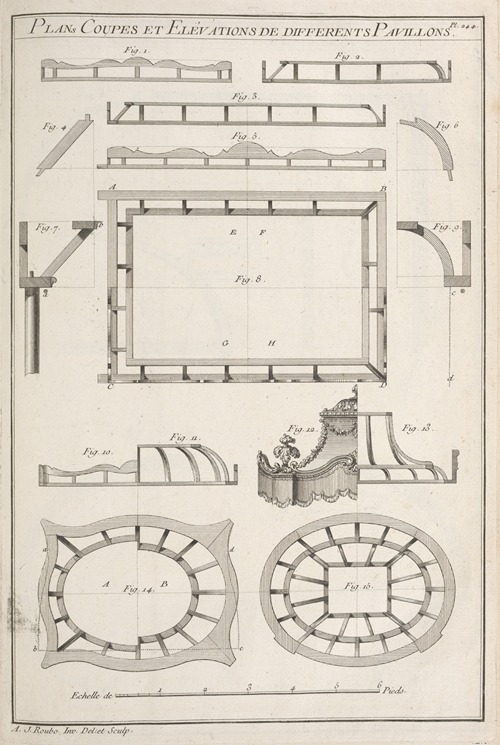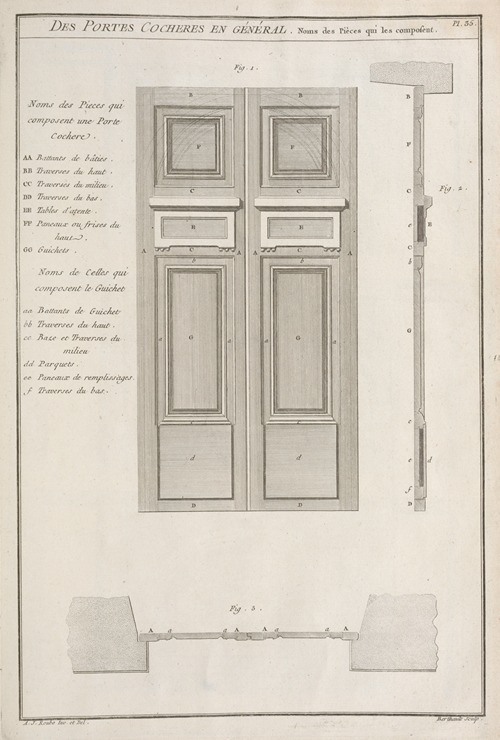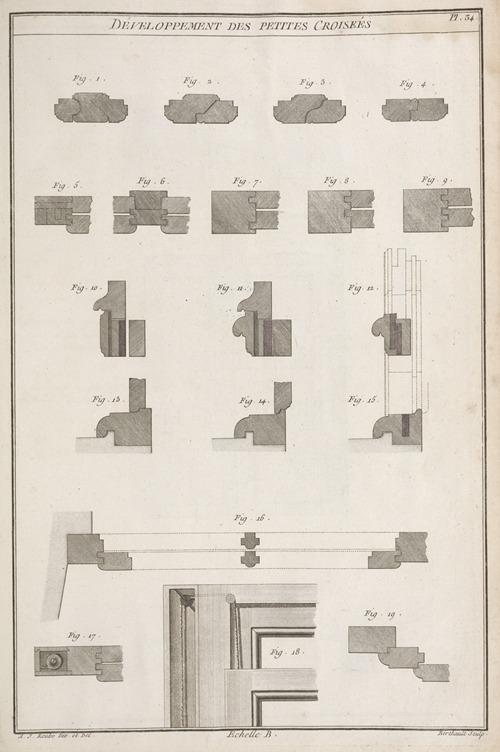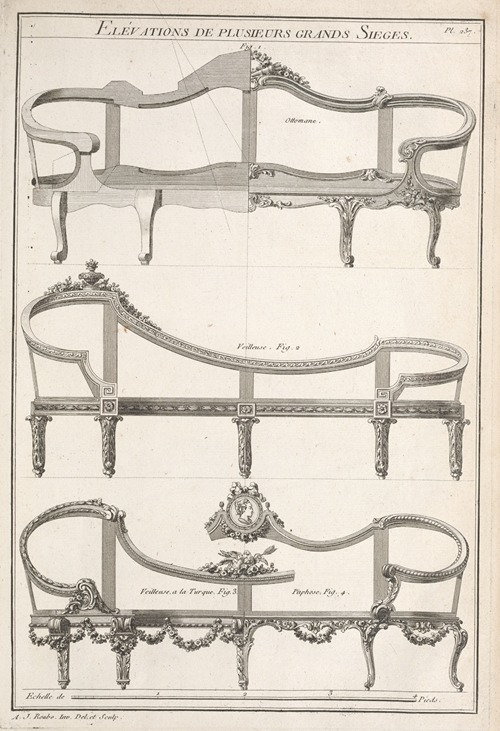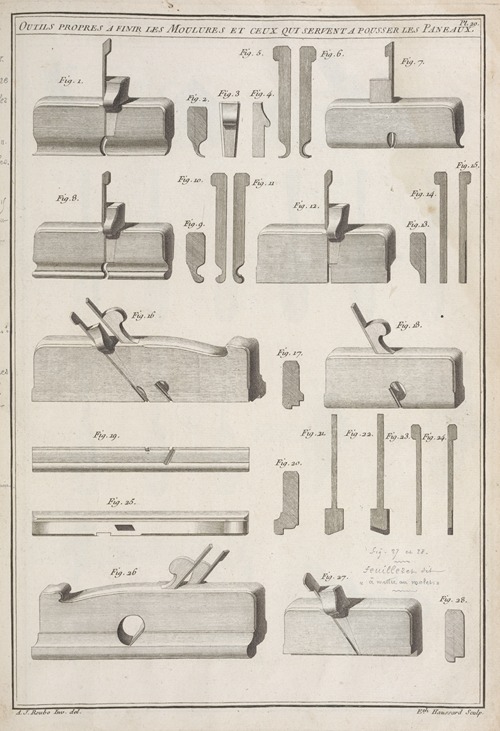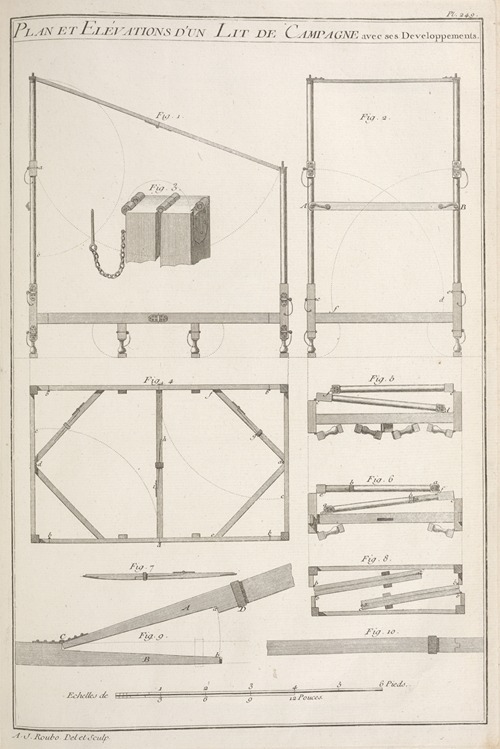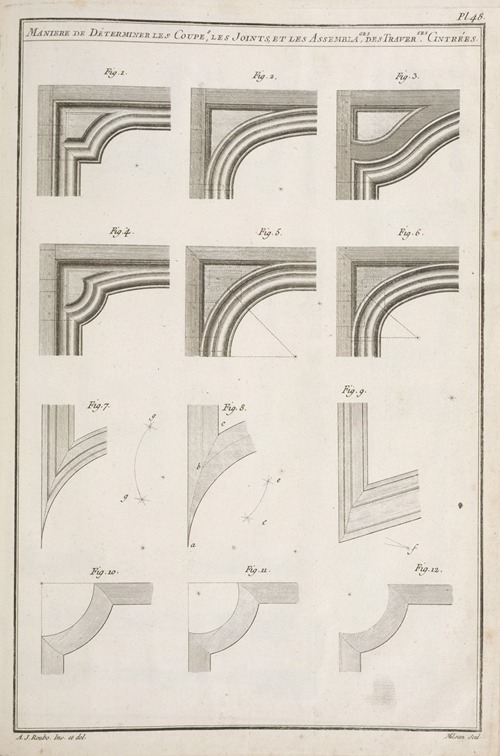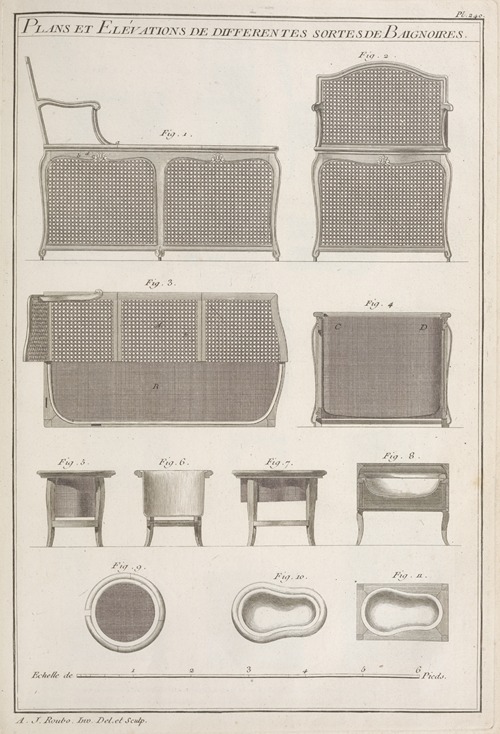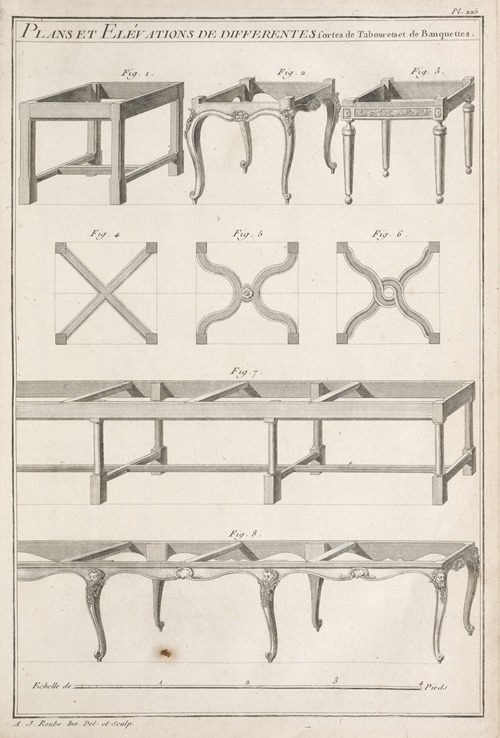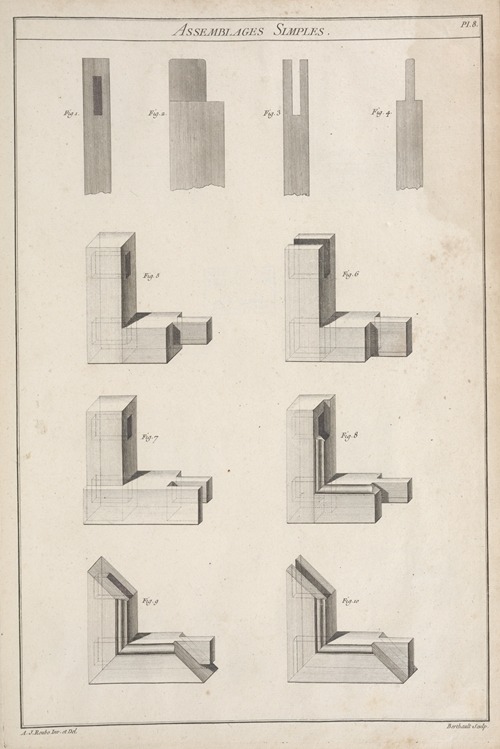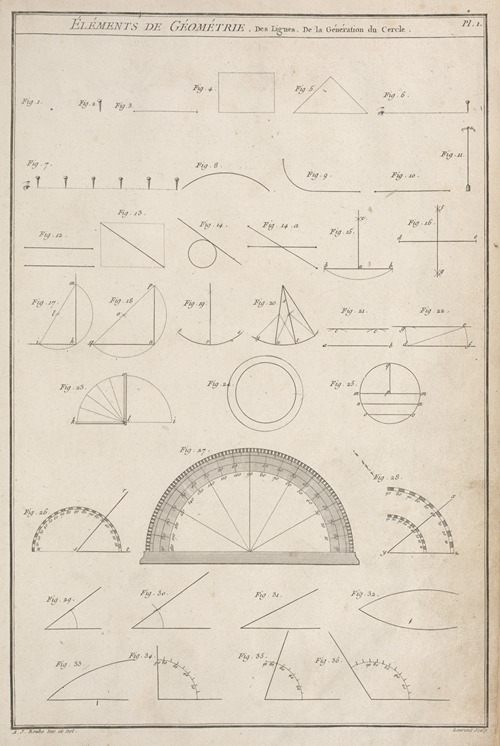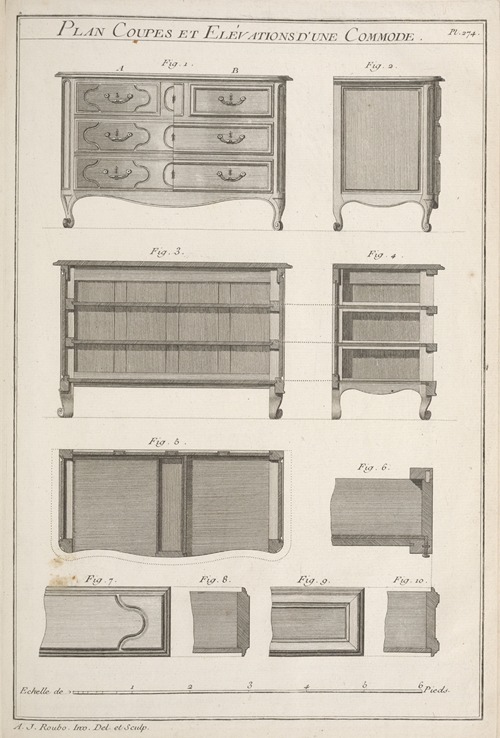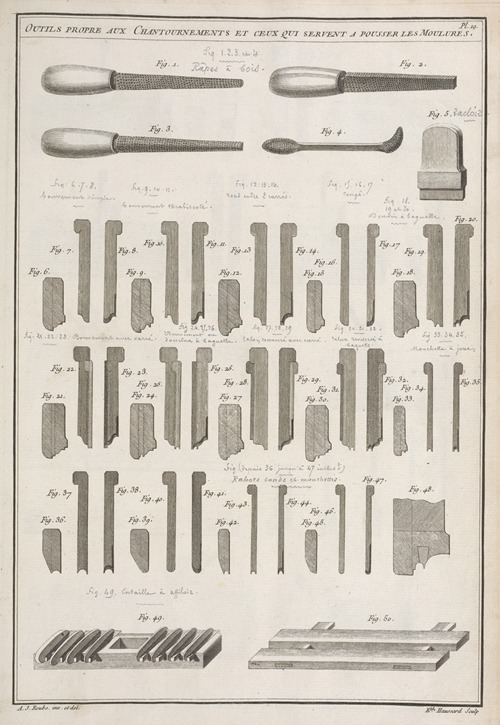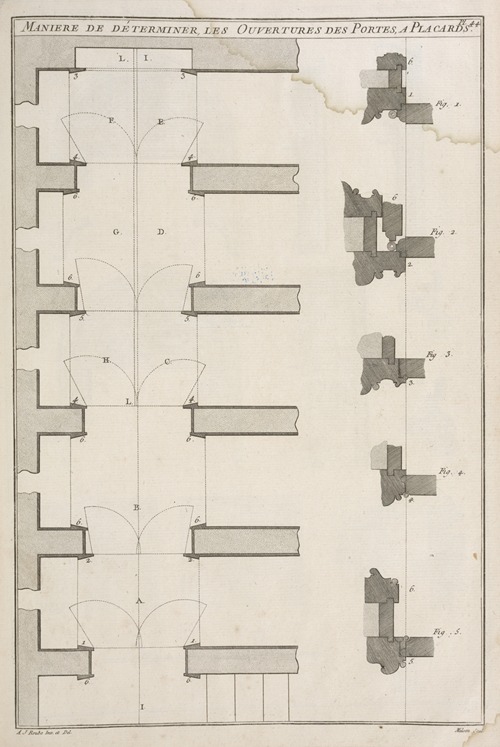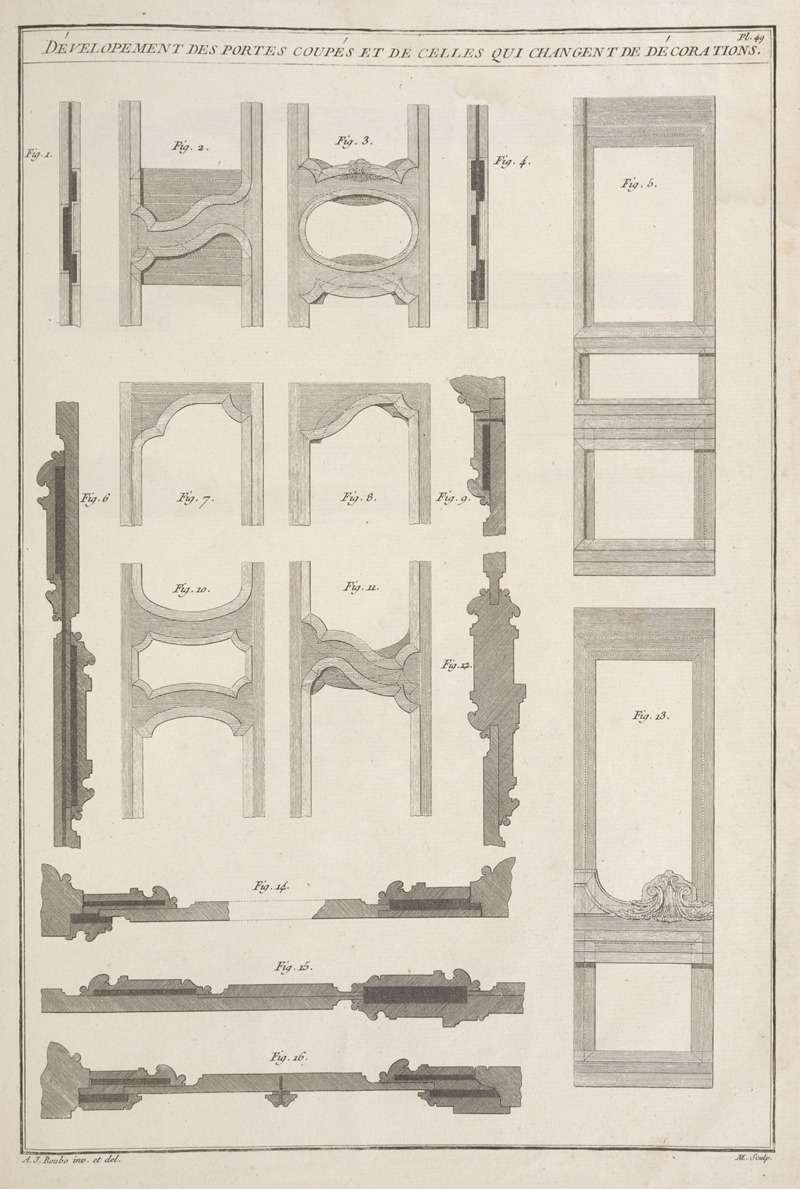
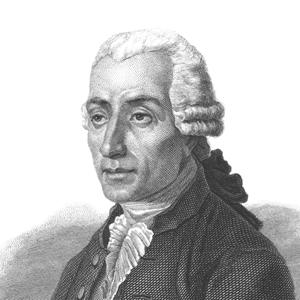
André Jacob Roubo was a French carpenter, cabinetmaker and author. Roubo was born and died in Paris, and was the son and grandson of master cabinetmakers. Roubo wrote several highly influential books on woodworking, an achievement which was especially notable given his relatively poor background and self-taught methods.
His career peaked in 1774 when he published his masterwork treatise on woodworking, titled L'Art du Menuisier. This long-standing work covered practically all methods and trades associated with woodworking. Another of Roubo's legacies still used today is a design for a workbench, which has proven to be popular amongst modern woodworkers.
A street in Paris, rue Roubo, was named after Roubo in 1850. It is located in the 11th Arrondissement, an area inhabited by furniture manufacturers.
André Jacob Roubo was born in Paris in 1739, the son and grandson of fellow woodworkers. His father was a joiner, and André became his apprentice in 1750 at the age of 11. Despite having a relatively poor upbringing, André was literate and taught himself various topics including mathematics and design. His dedication for learning attracted the attention of several professionals, including the architect Jean-François Blondel. Roubo became a pupil of Blondel who waived his tuition fees, and spent five years studying whilst also working for his father during the day. He received the title of Master in 1770 upon publication of the first part of L'Art du Menuisier. He designed and supervised the construction of the great domes of the halls Wheat and Cloth, and a monumental staircase to the hotel of the Marquis de Marbeuf.
In 1768, at the age of 29, Roubo started working on his treatise more intensively, having done practical woodwork for 18 years. This treatise was published in four volumes between 1769 and 1775. In 1777, he published the first part of a treatise of theater construction and theatrical machinery. The footnotes of these books show that Roubo had an interest in the social status of artisans. In 1789 most of his noble customers had left France; Roubo was nearly bankrupt and was forced to join the National Guard in 1790. Here he achieved the rank of Lieutenant before dying in 1791. He left a widow and four children who lived on his pension in Rue Saint-Jacques, Paris.
Roubo died in Paris in 1791. A biography of Roubo was written in 1836 by the architect and carpenter Louis-Auguste Boileau in the series Portraits et histoire des hommes utiles (Portraits and History of Useful Men) published by Franklin Montyon and Company.
